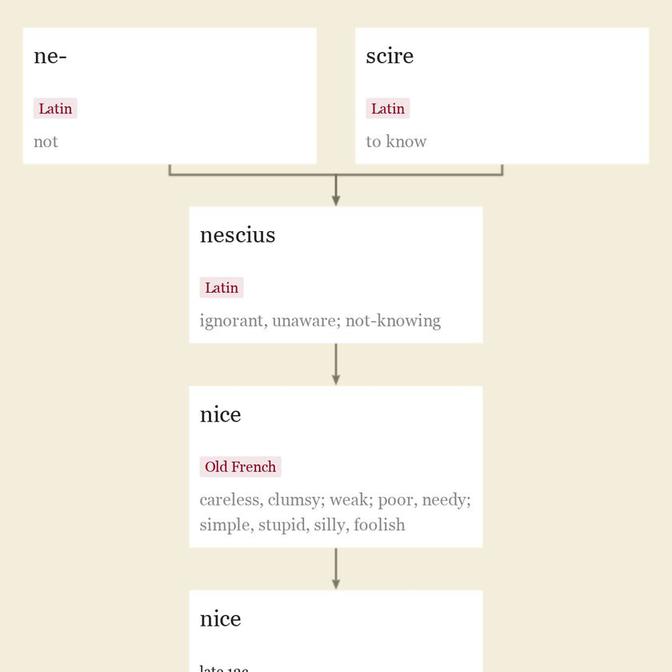overnice adj.
also over-nice, "
Entries linking to overnice
word-forming element meaning variously "
In some of its uses, moreover, over is a movable element, which can be prefixed at will to almost any verb or adjective of suitable sense, as freely as an adjective can be placed before a substantive or an adverb before an adjective. [OED]
Among the old words not now existing are Old English oferlufu (Middle English oferlufe), literally "

late 13c., "
In many examples from the 16th and 17th centuries it is difficult to say in what particular sense the writer intended it to be taken. [OED]
By 1926, it was said to be "
"I am sure," cried Catherine, "I did not mean to say anything wrong; but it is a nice book, and why should I not call it so?" "Very true," said Henry, "and this is a very nice day, and we are taking a very nice walk; and you are two very nice young ladies. Oh! It is a very nice word indeed! It does for everything." [Jane Austen, "Northanger Abbey," 1803]
For sense evolution, compare fond, innocent, lewd, also silly, simple.
updated on November 03, 2019